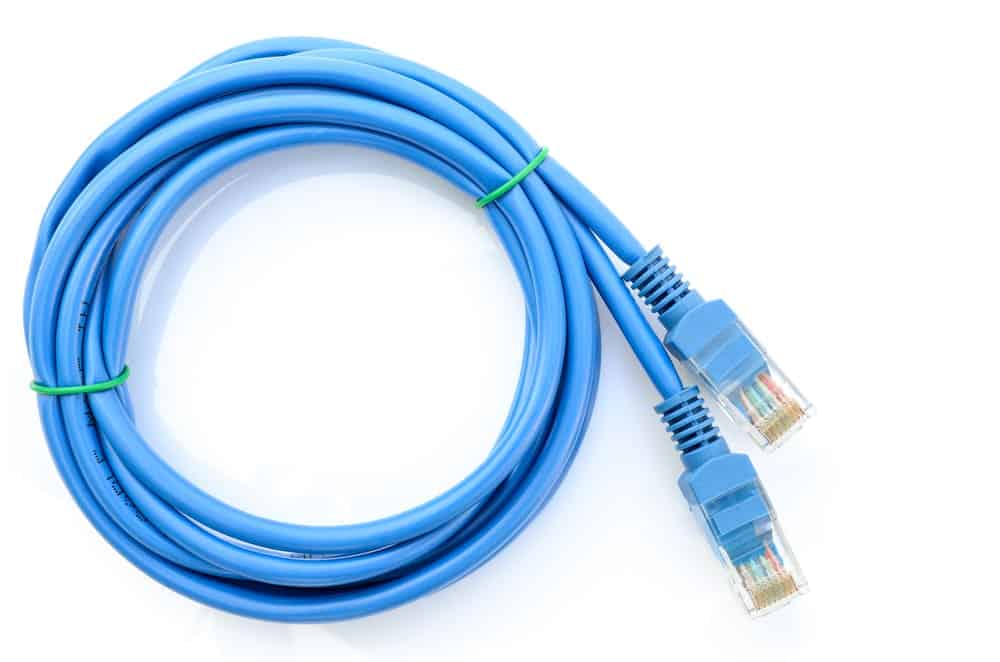
The ethernet cables are usually preferred by gamers or people who don’t want signal interferences. This is because the ethernet cables promise unhindered signals, and the signals haven’t interfered. However, people often wonder, “does a longer ethernet cable slow internet speed?” So, let’s find out how true is it!
Does A Longer Ethernet Cable Slow Internet Speed?
For the most part, the long ethernet cables can lead to slow internet connection since it increases the latency. In addition, it increases the distance that the signal has to travel to reach the end-user. On the contrary, it’s essential to note down that ethernet signals tend to travel at 2/3rd the light speed. Therefore, the users might not notice the difference in internet speed, be it the short cable or longer.
Generally, it’s safe to say that the ethernet cable’s length will not matter when it concerns the length. Still, there is a limit to which the single cable’s length can be increased.
Suitable Length Of The Ethernet Cable
Truth be told, there is no particular limit for the length of ethernet cable for a single run. However, the length of the ethernet cable directly influences the latency. For instance, if the length of the ethernet cable is increased, it will consequently increase the latency. This is because the internet signals will need to travel farther away. So, the farther the signal has to travel, the more the chances of interferences. There are still limited chances that internet speed will be influenced (especially with the shorter cables).
For instance, if you switch from a 10m ethernet cable to a 20m ethernet cable, the users won’t be able to tell the difference in the internet speed. Although the length of the ethernet cable is increased twice, the users wouldn’t be able to outline differences in the internet speed. There will be a slight loss of signals with longer lengths of cable, but it’s still not drastic. This is because the minor changes in length will not result in connection issues.
However, the users might feel drastic internet speed issues if the cable length exceeds 100m. The single ethernet cable run is designed to work optimally up to 328ft (or 100m approximately). When the length surpasses this count, the internet signals start weakening and will reduce the internet passed. In addition, it will impact the reliability of the internet connection. For the people using old ethernet cables (CAT5), the internet speed up to 100Mbps will be optimal for up to 100m.
So, if the ethernet cable length is increased beyond it, the speed will reduce to 10Mbps. To be honest, the ethernet cable above 100m will work, but the connectivity issues will increase. This is the prime reason that manufacturers don’t suggest going beyond this length while using the ethernet connection. To summarize, the internet speed will be optimal and reliable if the ethernet cable run doesn’t exceed the 100m length (minor latency issues might incur).
Transmission Speed Of Ethernet Signals
It’s pretty evident that users don’t have to worry about the ethernet cable speed with 20m cable (if they were using 10m ethernet cable previously). The internet or ethernet signals travel at 2/3rd the speed of light, which makes it around 200km/millisecond. With this being said, there will be no issues with the internet connection as long as you don’t exceed the ethernet cable length. All in all, the minor increase in ethernet cable won’t impact the internet connection.
Suitable Length Of Ethernet Cable
To be honest, the length of the ethernet cable doesn’t impact the internet speed drastically as long as the single run doesn’t exceed 100m length. If the length of the ethernet cable is increased by this count, there is a potential for signal loss because the signals will have to travel a long distance. In addition, when you are installing the ethernet cable, make sure the installation is tight.
Upgrading The Ethernet Cable Length
For the people who need to transfer files and data, upgrading the ethernet cable will be better. However, the internet connection will be directly influenced by the quality of the ethernet cable. Usually, people opt for Cat-5e cables, but the Cat-6 cables have better quality. Also, the Cat-7 cables are top-notch but can be pretty expensive.